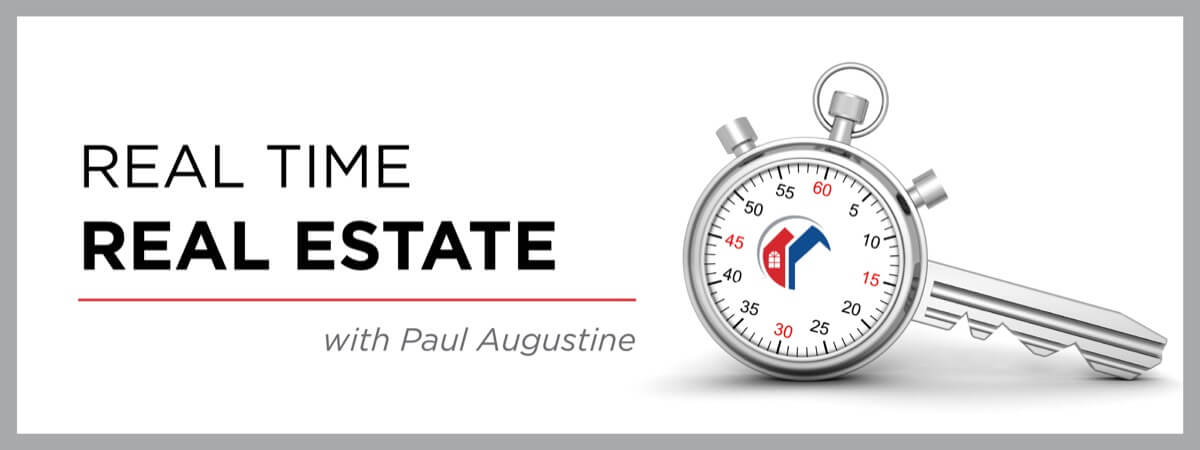
2020 Real Estate Market Predictions: Buying and Selling in, and after, a COVID-19 Age
If you’d have asked me three weeks ago what the impact of the COVID-19 shut down/shelter-in-place orders in Pennsylvania would have on our real estate market, I would have most likely described the impact as a “pause button” of sorts.
I would have projected that home sellers will need to postpone their plans until buyers could resume touring homes as usual. I would have projected that buyers would either need to extend leases for a few months, or deal with living with family just a little while longer until ‘For Sale’ signs started cropping up in the market again.
And, a few weeks ago, based on the pause in activity that agents had begun experiencing in the market, the pause button theory would have been a sound one.
And today that theory is all wrong.
Real Estate Transactions: Now & Later
Before we delve into what we’re actually starting to see in the Greater Philadelphia real estate market, let’s first be clear that this does not pertain to existing contracts and pending sales. Those transactions, for the most part, are marching forward as scheduled—albeit with adaptations in the process to keep everyone safe and healthy. (Getting into how some of those adjustments may be here to stay is another subject for another day).
What I’m referring to here is more behavioral and more forward-looking. The real estate transactions that are about to happen in 2020, and possibly beyond are going to be different, no doubt. But how? How will the COVID-19 crisis affect the way buyers buy and sellers sell in the months and years ahead?
“Virtual” is a word we’ll probably be seeing and hearing more frequently. I think the most surprising trend to me over the past two weeks is the uptick in homes that are coming to market. Moreover, they’re being virtually toured and even being bid on, sight-unseen. This pattern presents a new dynamic for our market area, and it’s a testament to the level of motivation that buyers have right now to find a home, with or without a global pandemic.
Consider: The Real Estate Buyer of the Moment
When you stop to think about it, it does make sense. If I was planning to buy a home this spring or summer, it was probably because of unhappiness with my current living situation. And now I’m stuck in that living situation, 24 hours a day, seven days a week. What’s the upshot? Is my motivation dwindling, or is it intensifying?
Here’s the answer. Two weeks into this quarantine, I, that buyer-to-be, am going positively out of my mind. I’m browsing for new homes on the market, finding very few at first. Then, all of a sudden, a few start popping up. And this one is right in that neighborhood that I love—and oh, here’s a video tour! You know what, I decide, I’m going to make an offer! And so it goes.
If there was any question as to whether or not our real estate market would rebound on the other edge of the state-wide “shut down” of non-essential businesses, the simple fact that buyers are still looking and still bidding in this environment should tell you all that you need to know about the health of the real estate market: We are on solid ground. Food, clothing, shelter—all essential to survival. And from the looks of it, housing (i.e., shelter) could be the nucleus of our economic recovery once this is all over.
The New Normal for Real Estate’s Near and Distant Futures
However, for a season, the tactics which we use to buy and sell our homes could change. Let’s just take a walk through this for a minute and you’ll see what I mean.
Pretend for a minute that come May 1, shelter in place orders are lifted and now all businesses are open and operational again. Are you heading to a crowded restaurant or bar that weekend? Or a concert? Or any other large gathering?
How about to a real estate open house where 40 groups of people have coughed and combed through in a two-hour time span?
Imagine you’re a homeowner that is about to sell your home. You’re still living there until it’s sold. What methods are you going to be comfortable deploying to show your home to prospective buyers?
I don’t raise all of these questions to be pessimistic about our near future, or to paint a more bleak image of what lies ahead than what you had in mind. I raise all of these because as time moves forward, and as we find ourselves in any of these scenarios, we’re all going to be asking these questions.
So here’s what I’m saying: Maybe when it comes to buying or selling real estate in 2020, the idea of scheduling a virtual open house on Saturday at 11 a.m. instead of a live/in person open house on Sunday from 1 to 3 p.m. makes better sense than the classic model, both for seller safety and for the safety of potential buyers. And from there, buyers who are still interested following the virtual tour will have a few days to come and view, on a “one party at a time” basis, for the few days that follow, with a prescribed offer submission deadline and review date/time.
This, of course, may create some frustration for buyers who are accustomed to being able to look “at their pace,” and often needing to very quickly so that a home doesn’t get snatched up by a competitive buyer before they get a chance to view and bid. There will be some pandemonium of sorts, as every home seller, and agent, and buyer will have different views on public health and safety, and in turn will manage these processes differently.
As agents, we may want to consider what steps we are now conducting face-to-face with our clients that we can easily move to a Zoom Meeting setting perhaps, both for the sake of our health and our clients’. Bringing hand sanitizer, and gloves and masks out on home tours may be a good call if you’re a buyer, or a best practice if you’re a real estate agent. Thoroughly cleaning doorknobs and foyer floors at the end of a day’s showings, providing shoe slip covers to limit contamination through your home could—these things could become daily rituals for homeowners trying to sell their property, and comprise advisory responsibilities for agents.
Digital Transformation in Real Estate: How Necessity Becomes Normal
Thinking about a post-pandemic world, it’s ironic that the technology and tools real estate agents will permanently integrate into the buying and selling process, and perhaps even depend on, will have been available for many years prior. But history shows us that’s often how these things go: It’s most often vast global challenges—war, health, economics—that cause great leaps forward.
Frankly, some leaps forward will be a breath of fresh air for buyers and sellers whose biggest resistance to real estate has been how disruptive it can be to daily life. Imagine a future where e-signing of mortgage docs and possibly even e-notarization may become common practice. Where home inspectors may perform the bulk of their visits solo and, toward the end of the inspection, jump onto a video chat with the buyers to review the key findings during the home inspection—again, in an effort to limit the number of people in the same place at the same time, but ultimately, providing a newfound convenience to buyers.
Tactics will change, and so will expectations. But the motivation for shelter, somewhere to call home, has never been stronger. Those of us who want to sell our home can take solace in the fact that demand does not appear to be going anywhere by the looks of it right now—and that demand, for the moment, appears it will intensify in the months ahead.

“Real Time Real Estate” is a limited blog series by Paul Augustine, Associate Broker at RE/MAX Centre Realtors, written to help you navigate the good and bad in the era of COVID-19.
